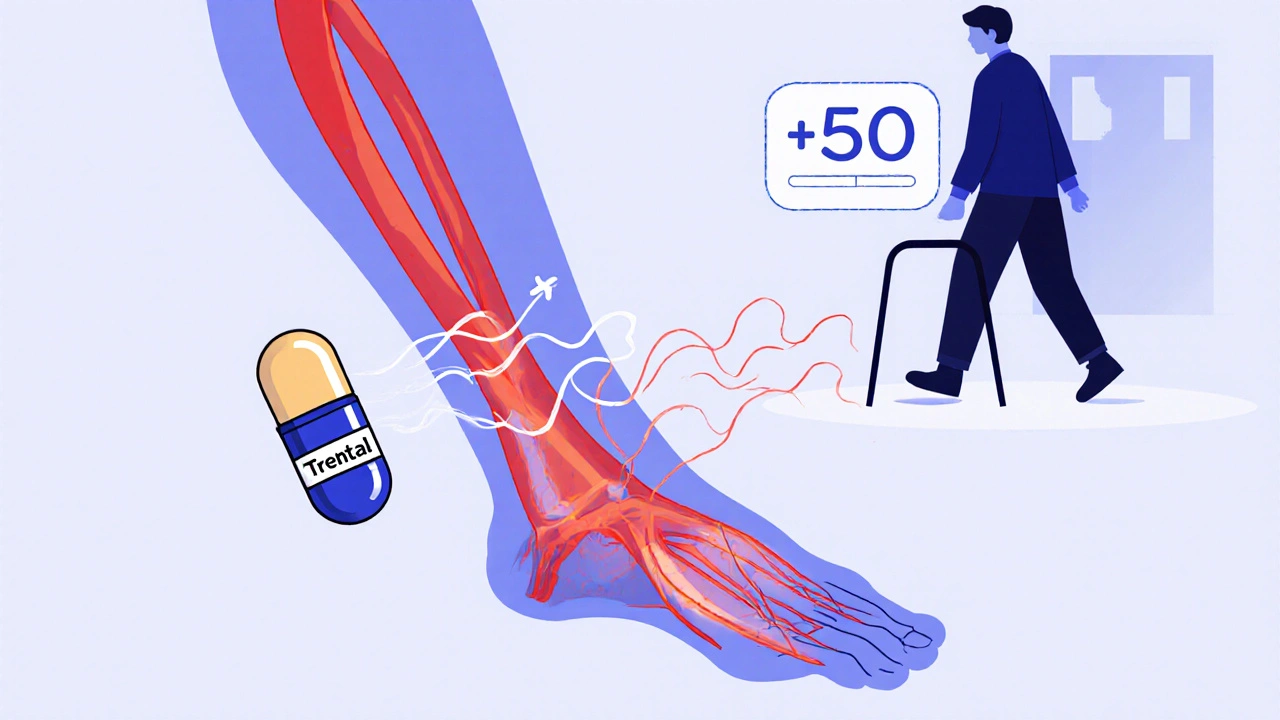Trental: What It Is, How It Works, and What You Need to Know
When you have trouble walking because your legs ache or feel heavy, it might not just be fatigue—it could be poor circulation. Trental, a brand name for the drug pentoxifylline, is used to improve blood flow in people with circulation problems, especially in the legs. Also known as pentoxifylline, it helps red blood cells move more easily through narrowed vessels, making it easier for oxygen to reach tired muscles. Unlike painkillers that just mask discomfort, Trental works on the root issue: thick, sluggish blood that struggles to flow through small arteries.
This medication is most often prescribed for peripheral artery disease, a condition where plaque builds up in the arteries that supply blood to the limbs, causing pain during walking. It’s not a cure, but many people notice they can walk farther before needing to stop. Trental doesn’t work like a stimulant—it doesn’t give you a rush. Instead, it gently improves how blood moves, which can reduce cramping, numbness, and coldness in the legs. It’s also used off-label for other circulation issues, like Raynaud’s phenomenon or even some types of tinnitus, though evidence there is weaker.
People who take Trental often wonder how it compares to other treatments. It’s not as strong as surgery or stents, but for those who can’t undergo invasive procedures, it’s a practical option. It’s also cheaper than many newer drugs and doesn’t require daily injections. Side effects are usually mild—stomach upset, dizziness, or headaches—but they’re common enough that some people stop taking it. If you’re on blood thinners or have a history of bleeding, you’ll need to be careful. Trental doesn’t fix blocked arteries, but it helps your body work around them.
What you’ll find in the posts below isn’t just a list of articles—it’s a collection of real-world insights. You’ll see how Trental stacks up against other circulation drugs, what doctors actually tell patients about taking it, how long it takes to feel a difference, and what alternatives people turn to when it doesn’t work. There are also posts on how genetics affect drug response, how mental health can worsen circulation symptoms, and how lifestyle changes can boost results. Whether you’re just starting out or have been on it for months, there’s something here that speaks to your experience.

Compare Trental (Pentoxifylline) with Alternatives for Peripheral Artery Disease
- by Colin Edward Egan
- on 6 Nov 2025
Compare Trental (pentoxifylline) with alternatives like Cilostazol, statins, and exercise for treating peripheral artery disease. Learn which options actually improve walking distance and reduce heart risks.
